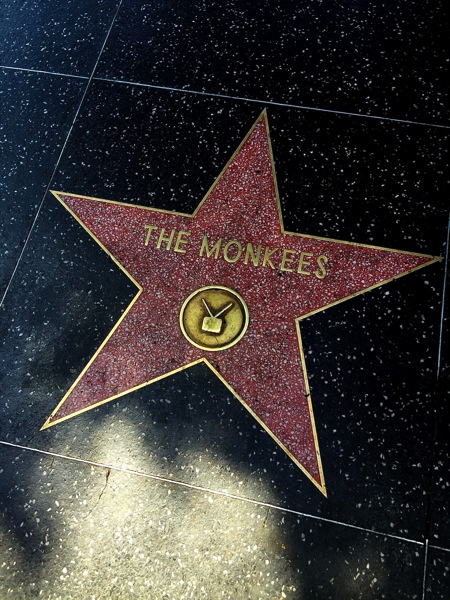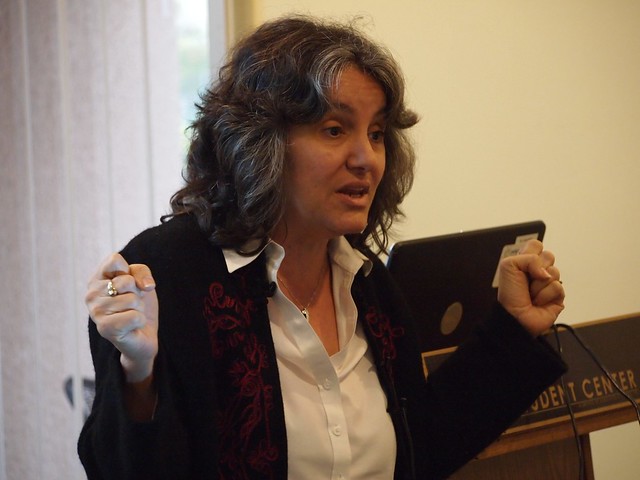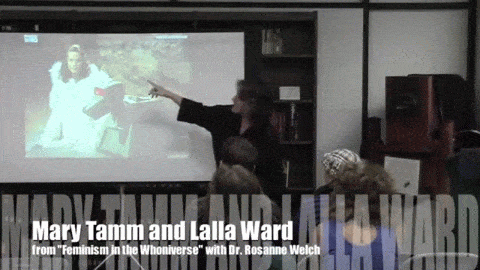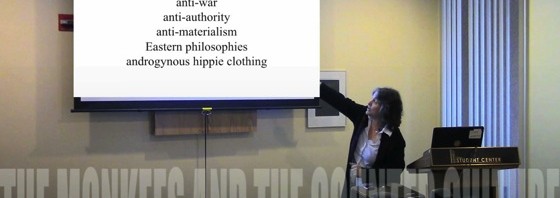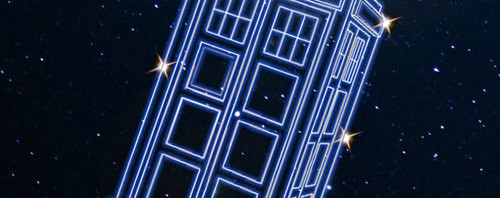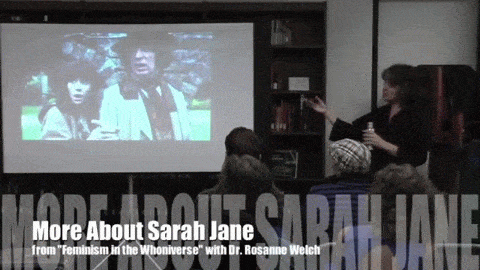A clip from this longer presentation – Doctor Who: Feminism in the Whoniverse with Dr. Rosanne Welch
Watch this entire presentation – Doctor Who: Feminism in the Whoniverse with Dr. Rosanne Welch
Dr. Rosanne Welch (https://rosannewelch.com) speaks on “Feminism in the Whoniverse” of Doctor Who, the BBC television program now in its 50th year. She reviews each of the Doctor’s female companions and speaks on how they are represented in the program and how they represented the women of their respective periods.
Transcript:
We had Romana, a female Timelord. The only one we’re going to see in the course of the show. And we move on to Tegan. Very interesting. Very fun character. Very tough. However, the best job that we can give her in this period is she’s a flight attendent. That’s the coolest job we can give a woman. She’s not the pilot, right? She’s not even a military woman. She’s a flight attendent. Which is not a bad job. My friend has that job but even she says to me, “It’s pretty much Denny’s waitressing in the sky.” Now, it’s not. She gets trained to do all kinds of important things of there’s a crash and what not, but that’s the job we find ourselves giving the female in this period. Not an entirely, you know, super-intellectual job. I will say, it kind of interesting that the uniform and the idea that a woman in uniform — a person in uniform — is someone of power. That’s something visually that made them happy.
Feminism in the Whoniverse was presented at the Cal Poly Pomona University Library where Dr. Welch teaches in the IGE (Interdisciplinary General Education) program.
This is the 4th talk on various aspects of Doctor Who that Dr. Welch has presented. You can find these talks using the links below.
- Doctor Who and Culture
- Doctor Who Regenerated
- “How the Growing Popularity of the English Who-niverse Effected American TV” with Dr. Rosanne Welch
Subscribe to Dr. Welch’s YouTube Channel
Podcast: Play in new window | Download
Subscribe: RSS


